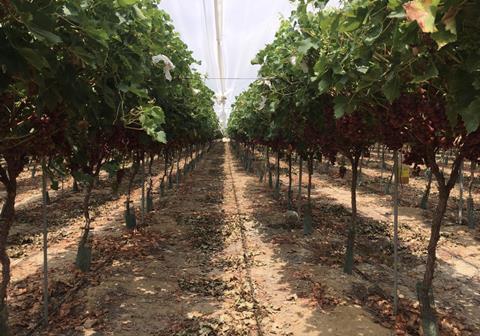Key challenges identified at the Cape Town symposium will guide the agenda towards 2026

With the 10th International Table Grape Symposium winding down in Cape Town today, it has been confirmed that Spain will host the next symposium in 2026. The event will be held in the main table grape region of Murcia during the last week of September.
Rupert Maude, representing Apoexpa, the Spanish Association of Producers and Exporters of Fruits, Table Grapes and Other Agricultural Products, said hosting the next symposium would provide a good opportunity for producers, researchers and suppliers of products and materials in Spain and the Region of Murcia to share their ideas, their progress and their knowledge with the rest of the world.
“In our bid we proposed that the XI International Table Grape Symposium be held during the last week of September in 2026,” Maude said. “This is due to the fact that the first week of October is normally reserved for the Annual Fruit Attraction Fair and Fruit Attractions event in Madrid. Delegates can therefore combine both events in their travel plans.”
Murcia produces more than 80 per cent of Spain’s total seedless table grape crop. “The Region of Murcia has its own breeding programme, namely ITUM (Research and Technology of Table Grapes), which was established by the Regional Government of Murcia and Murcian producers. The newly established Bloom Fresh also has an important research centre just outside Murcia city,” Maude said.
He pointed out that Murcia’s wide range of climatic and growing conditions and the possibility of producing from sea level to more than 600m above sea level, allows for the cultivation of a wide range of varieties for almost six months of the year – from June till December.
“We believe there is much new technology that we will be able to share with the world in 2026,” he noted.
During the symposium in Cape Town the search for new varieties and addressing climate change issues emerged as two of most important challenges for the world table grape industry. Observers also agreed that calls for greater cooperation between growers in the various regions of the world will have to be addressed in the run-up to the next symposium.



